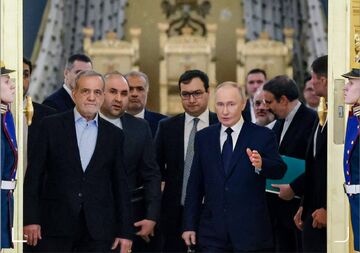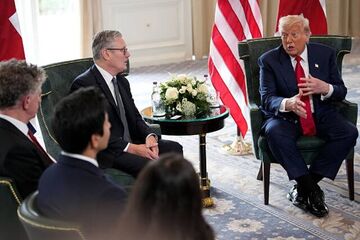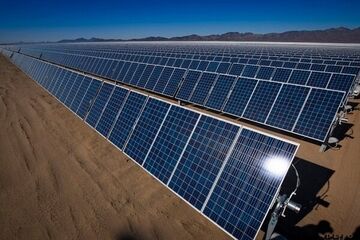TEHRAN(Bazaar) – Professor Frank N. von Hippel, former assistant director for national security in the White House Office of Science and Technology, says Iran is certainly important in its region. It is powerful enough to defend its own independence.
He adds: As with China and the US, it can develop cooperative or competitive relations with its neighbors. As with the US, internally, it can focus on the development of its own people and become stronger, or it can focus on its internal divisions and become weaker.
Following is the text of the Bazaar interview with Professor Frank N. von Hippel.
Q: The decline of American hegemony has been discussed in Western and American circles for years, and some believe that this decline began in the 1970s. Prominent American theorists such as Robert Owen Keohane, Joseph Nye and Stephen Walt have talked about this. In your opinion, what are the reasons for the decline of Hegemon?
A: The US came out of the global depression of the 1930s and then World War II as the only intact superpower. It also had an able leadership that quickly became focused on competing with a rising Soviet Union. After that confrontation stabilized in the 1970s, US politics turned toward the domestic issues that divide us instead of the external challenges that united us.
Q: The rise of China has brought the issue of the decline of American hegemony into a new phase in recent years. What do you think the US will do to contain China in the coming years?
A: The US has been moving into a Cold War mode relative to China. This is a very dangerous time in the relationship – especially with regard to Taiwan. I don’t think that the US can contain China like it contained the Soviet Union. China is too much embedded as a central player in the global economy. The US focus appears to be narrower in trying to stay ahead of China in military technologies and trying to keep Western telecommunications systems from depending on Chinese technology, which might provide backdoors for Chinese espionage.
Q: Some people argue that China's rise has left no other way for America but confrontation, and naturally the two countries will face bigger challenges. Do you agree with this argument?
A: I think Biden and Xi are trying to avoid military confrontation but the situation relating to Taiwan is very dangerous.
Q: In the recent meeting between Biden and Xi Jinping in Bali, Indonesia, on the sidelines of the Group of 20 summit, the two sides emphasized cooperation while competing and depended the future of the world on the cooperation of these two countries. What is the importance of this meeting and what direction will it take to manage the challenges between the two countries?
A: In terms of cooperation, the obvious initial focus is to work together on limiting climate warming where China is the number one emitter of CO2 and the US is number two. Both countries – as well as the world – are already suffering from climate warming. Cooperation on shifting to non-fossil-fuel energy and to higher efficiency in energy use could be good for both countries and a useful reminder that survival on our small planet is only possible through cooperation.
Q: It is argued that in the new world order, regional powers like Iran are of special importance. Do you agree with this argument? If you agree, what is the reason for the importance of regional powers in this order?
A: Iran is certainly important in its region. It is powerful enough to defend its own independence. As with China and the US, it can develop cooperative or competitive relations with its neighbors. As with the US, internally, it can focus on the development of its own people and become stronger, or it can focus on its internal divisions and become weaker.














نظر شما